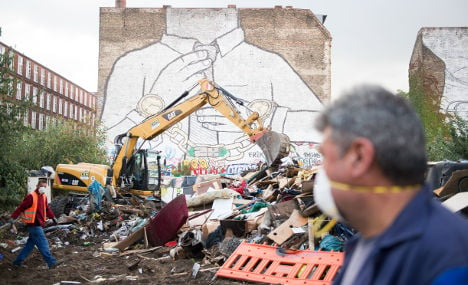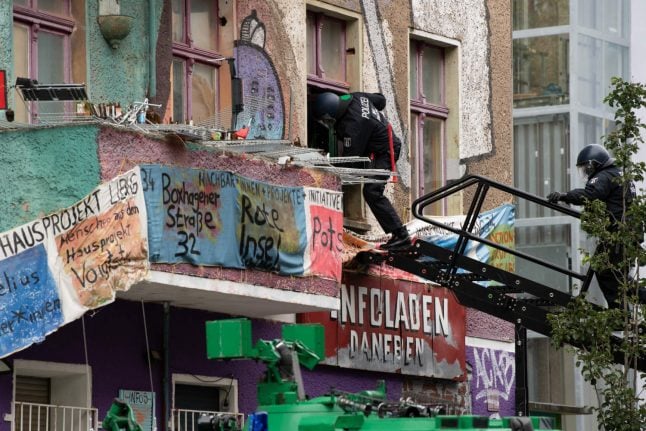Two building-sized paintings by Italian street artist BLU looking over the riverside lot, which was until recently occupied by squatters, depicted a man wearing two gold watches linked together like handcuffs and two figures pulling masks off one another.
The squatters had been evicted in September after property developer Artur Süsskind bought the site, where he plans to build 250 apartments, a supermarket and a kindergarten.
People tweeting from the scene reported that the workers on the site said they were "modifying" the art piece.
"We are just modifying the art piece", said the guys. #cuvrybrache #Xberg #berlin #blu #streetart pic.twitter.com/gfXSoPUYGT
— Joel Espi (@arthurcabot) December 11, 2014
"It is not the city of Berlin doing that, nor is it the real estate developers who want to build a new residential complex at this empty spot", one activist wrote in a blog post.
"In fact, it is being done by the people related to BLU … with his consent."
But far from the action being a bold statement against gentrification by denying the developer a chance to profit from the artwork, blogger Dmitry Paranyushkin calls it "a f**k you toward the city, toward the real estate company, but most of all – to all the people that love this artwork and everything it's come to represent."
@metronaut es ist so weit 🙁 pic.twitter.com/78nV8twlnL
— Marc Honninger (@MarcHonninger) December 11, 2014
"Their way of reclaiming Berlin is actually accepting their own loss", he adds. "If that is a statement, it is a statement of total despair, pessimistic and negative at its core, devoid of any faith, belief and hope."
And he points out that by destroying the artwork, those responsible have taken away something local people were fighting to preserve.
A petition on Change.org to accord the murals protected status had received over 7,500 signatures before they were painted over.
SEE ALSO: Berlin squat ripped apart by fire



 Please whitelist us to continue reading.
Please whitelist us to continue reading.
Member comments